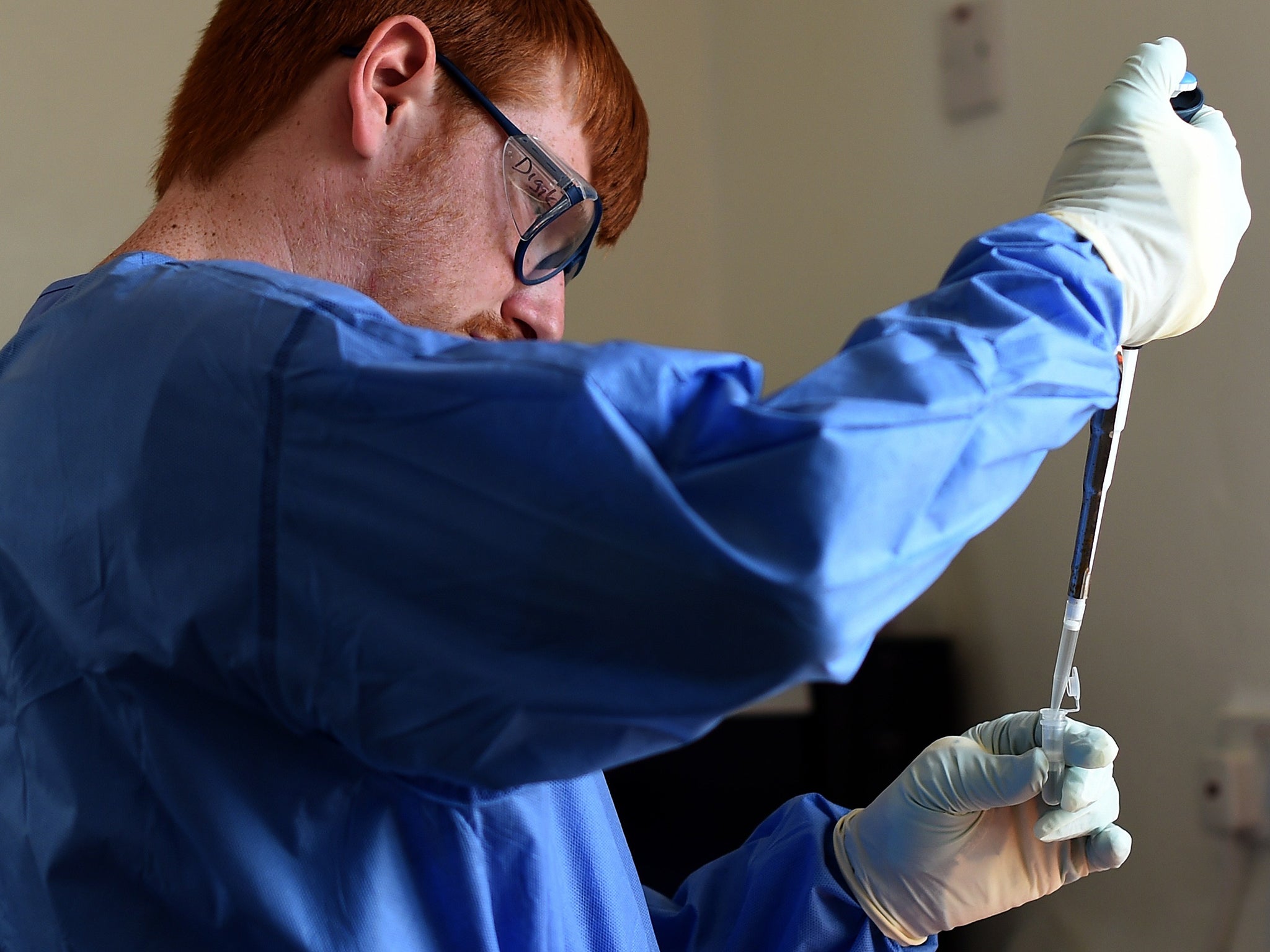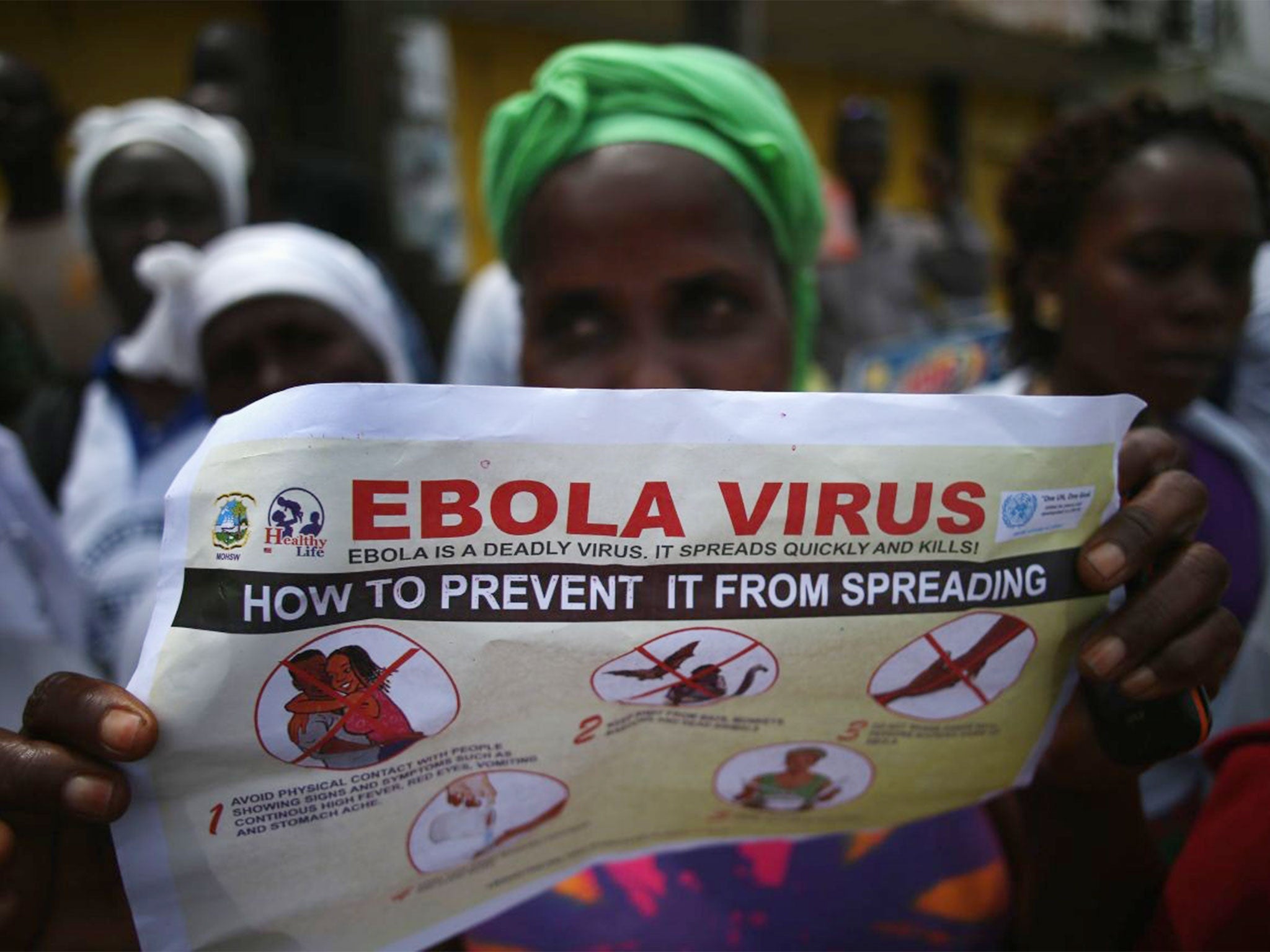Ebola in the UK: Seven reasons Britons should not panic – but should still be alert
The disease can be fatal, but the risk of a large number of people contracting the disease in the UK is extremely low

Your support helps us to tell the story
From reproductive rights to climate change to Big Tech, The Independent is on the ground when the story is developing. Whether it's investigating the financials of Elon Musk's pro-Trump PAC or producing our latest documentary, 'The A Word', which shines a light on the American women fighting for reproductive rights, we know how important it is to parse out the facts from the messaging.
At such a critical moment in US history, we need reporters on the ground. Your donation allows us to keep sending journalists to speak to both sides of the story.
The Independent is trusted by Americans across the entire political spectrum. And unlike many other quality news outlets, we choose not to lock Americans out of our reporting and analysis with paywalls. We believe quality journalism should be available to everyone, paid for by those who can afford it.
Your support makes all the difference.The second confirmed case of Ebola in the UK has led many to worry that an outbreak of the virus in the UK may occur.
A health care worker, Pauline Cafferkey, who was working in Sierra Leone, has been transferred to the Royal Free hospital's specialist Ebola treatment centre in north London to undergo intensive treatment.
The transfer has sparked fears that Ebola could spread.
As the health worker was quarantined in Glasgow and then transported to London on an adapted plane and driven to the hospital with a police escort the risk of contamination is considered low.
These are the seven reasons why the public should remain alert but not panic about Ebola.
Ebola is infectious but the virus can be killed by taking simple precautions
Although highly infectious, the Ebola virus can be killed simply by washing your hands with soap. It is important to ensure that any object or piece of clothing that may have been contaminated by a person with Ebola is disposed of to ensure it cannot infect other individuals.
The risk of catching Ebola from another person is low
As Ebola can only be transmitted through contact with the bodily fluids of an infected person or animal the risk of the virus spreading to a large number of people in the UK is low. Social contact with someone infected with the virus is not enough to contract the disease.
Those with the disease quickly exhibit symptoms meaning they are able to be quarantined rapidly and not able to spread the virus over a prolonged period of time, minimising the risk to public health.
The UK has robust procedures in place to deal with Ebola
While it is possible that more people will be diagnosed with Ebola in the UK the country has robust procedures in place to deal with the disease.
The UK's current specialist Ebola treatment centre is based at the Royal Free hospital in north London. But four hospital trusts: the Royal Liverpool University Hospital NHS foundation trust, Newcastle Upon Tyne Hospitals foundation trust and Sheffield Teaching Hospitals foundation trust will be able to care for Ebola victims if further patients are identified.
Seeking early medical attention lessens the risk of a fatality from Ebola
The overall fatality rate for Ebola is up to 90 per cent, although this figure includes patients who have not had access to early medical attention. In the UK patients would have access to some of the best treatment available in the world and if the disease is caught early there is a higher chance of survival.
No one in the UK has died from the disease
The World Health Organisation has calculated that 7,580 people have died from Ebola in Guinea, Liberia, Sierra Leone, Nigeria, Mali and the US. The total number of reported cases now stands at more than 19,340.
However, in the UK no one has died from the disease. William Pooley, who contracted the disease in August, made a full recovery after treatment in the Royal Free’s Ebola unit.

Ebola can be contained if dealt with properly
Ebola was first reported in Guinea in December 2013. But when health officials became aware of the epidemic procedures to halt the spread of the disease were put in place.
The disease has now largely been contained to West Africa. Senegal and Nigeria were able to stop the spread of the disease thanks to measures, including quarantines and public awareness campaigns. There is no reason to think that if an outbreak did occur in the UK, it could not be dealt with in a similar way.
The risk to those who have not travelled to at-risk locations is very low
To date the UK has dealt with two patients who were confirmed to have Ebola, both of whom had travelled to at-risk areas in Africa. They were both quickly isolated and received specialist medical care.
Therefore the risk of them spreading the disease or of health care workers contracting the virus is extremely low. It is unlikely that individuals who have not travelled to an at-risk area will contract the disease.
Join our commenting forum
Join thought-provoking conversations, follow other Independent readers and see their replies
Comments